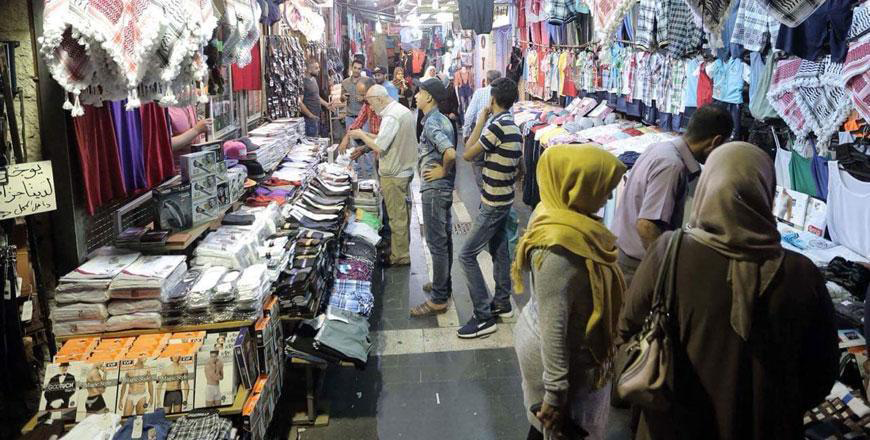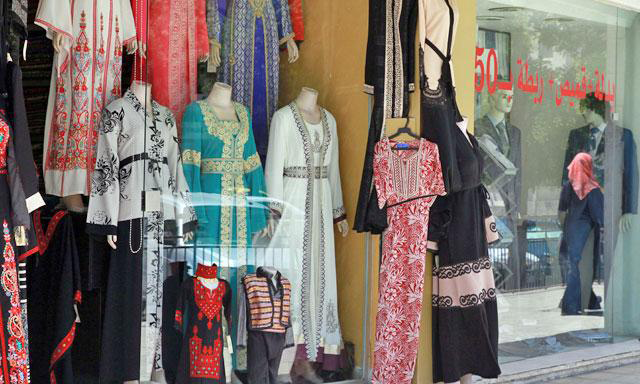You are here
Local fabric shops surge as boycott reshapes consumer preferences
By Maria Weldali - Oct 23,2024 - Last updated at Oct 23,2024

Local businesses are experiencing a growing demand for ethically sourced, regionally produced goods (JT File photo)
AMMAN — In a significant shift within the retail sector, local textile and fabric shops are experiencing an unprecedented surge in demand as consumers increasingly boycott many international fashion retailers, reshaping the retail landscape in Jordan, according to stakeholders.
The ongoing Israeli war on Gaza has reignited global boycotts against certain brands perceived as supporting Israel or being complicit through their supply chains, several stakeholders told The Jordan Times.
Many local consumers respond by seeking ethically sourced and regionally produced goods, said Khalid Hilal, owner of a fabric shop in Downtown Amman.
Hilal reported a remarkable increase in sales, noting that they have risen by at least 30 per cent compared with 2023.
“People are actively seeking us out. The boycott has been a major turning point for many owners in the textile business. Shoppers are no longer just purchasing; they are making statements and demonstrating solidarity through their choices,” he said.
Mohammad Yaseen, an employee at a fabric store in Wehdat, highlighted that while the boycott plays a crucial role in changing consumer behaviour, other factors are also at play.
“The difficult economic situation and high living costs are pushing people to be more creative in their clothing choices,” he said.
He also emphasised that “the boycott represents the strongest public response we’ve seen in many years. The choice to support local and regional fabric stores not only benefits our businesses but also bolsters all sectors across the Kingdom.”
Tasneem Khatib, a 25-year-old resident, said that local consumers are increasingly aware of the impact of their purchasing decisions, adding “I have completely stopped buying from big international retailers. Every thread I purchase locally feels like a positive step toward resisting the occupation.”
Sarah Hasan a university student, said, “I never thought about where my clothes came from until the Gaza war escalated. Now, I am more conscious of my choices and have started buying fabric locally to make my own clothing. It is not only cheaper but also more ethical.”
Related Articles
AMMAN — Retailers across the Kingdom anticipate a boost in sales as White Friday deals kick off, despite a year marked by economic challenge
AMMAN — As Ramadan progresses, Jordan’s apparel sector is witnessing its annual surge in demand.
AMMAN — The garment, textile and footwear sector has been suffering due to government-imposed taxes and custom fees, according to a se
















